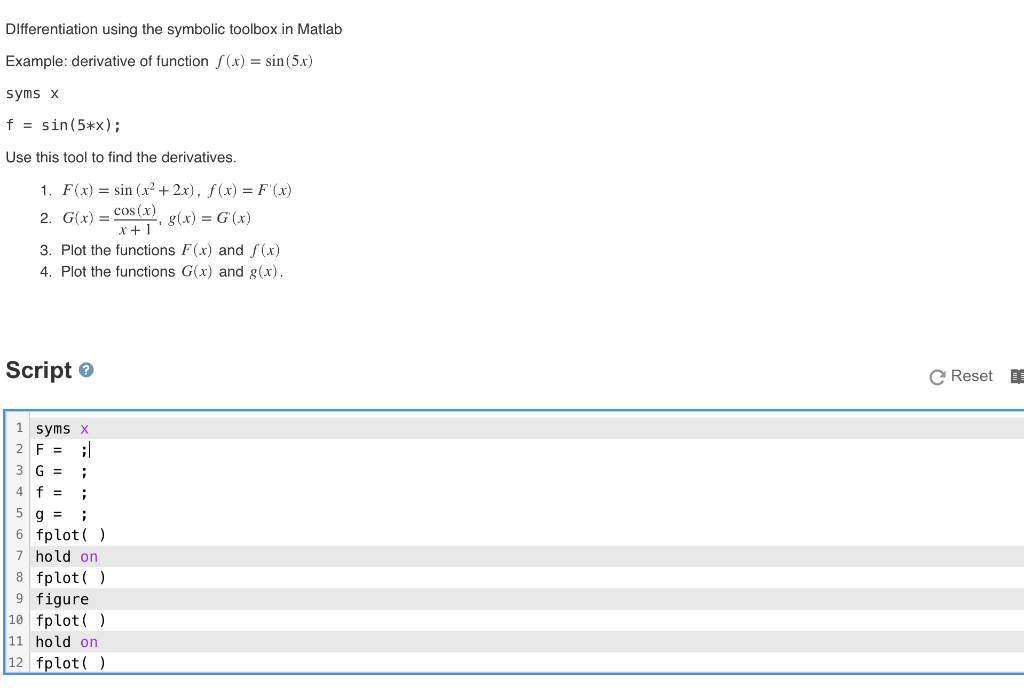


detects presence of repeated structures within a specified range of timescale measures consistency of harmony across the entire pieceĬomputed from Audio (and the Resulting "Fitness Scape Plot") measures consistency of rhythm across the entire piece measures erraticity of pitch usage in shorter timescales (e.g., 1 or 4 bars) See this paper (Huang and Yang, 2020) for a thorough introduction. The supported input format is event token sequences that can be mapped to MIDIs, rather than general MIDIs. The 21st International Society for Music Information Retrieval Conference (ISMIR), 2020.
#MATLAB SYMBOLIC TOOLBOX EVAL CODE#
GradVal= double(subs(DCritnGradF,)) Īs per profiling tool, more than 95% of optimization time is spent in evaluating lines of code pertaining to FuncVal and gradVal. I have a seperate function file "Objfungrad", provided below, which fmincon can tap in to for calculating function value and gradient for any given value of x function = Objfungrad(x)įuncVal = double(subs(DCritnF,)) Options for using gradient specified (fmincon code skipped here) %fmincon code to optimize DCritn using different start values of x. Xstart= % supplying start points for the optimization %bunch of symbolic computations to arrive at symbolic form of DCritn which is the objective function (see end result after signature) DCRGrad = jacobian(DCritn,x).' %Gradient of the the objective functionĭCritnF = subs(DCritn,q,qvalue.') %DCritn objective function specific to qvalueĭCritnGradF = subs(DCritnGrad,q,qvalue.') %Gradient of objective function as per qvalue In order to do the optimization, I supply different start points for x and use different set of algorithms like interior point, SQP etc to see which one generates best possible local mimima.

Here q1 and q2 are parameters and x1/x2 are the decision variables.įor any given value of q1 and q2, like let's say 0.6 and 0.3, I try to find the values of x1/x2 for which DCritn is minimum. The objective function (DCritn) is listed in the end of this question for reference.

The objective function I have is quite complex, based on a bunch of matrix computations (transpose, multiplication, inverse and finally determinant) using the gradient of function in equation 11 of. Details: Im working on global optimization of nonlinear and nonconvex functions by supplying different start points for the decision variables through a For Loop (only have the optimization toolbox in matlab and dont have the global optimization toolbox so simulating multistart functionality).


 0 kommentar(er)
0 kommentar(er)
